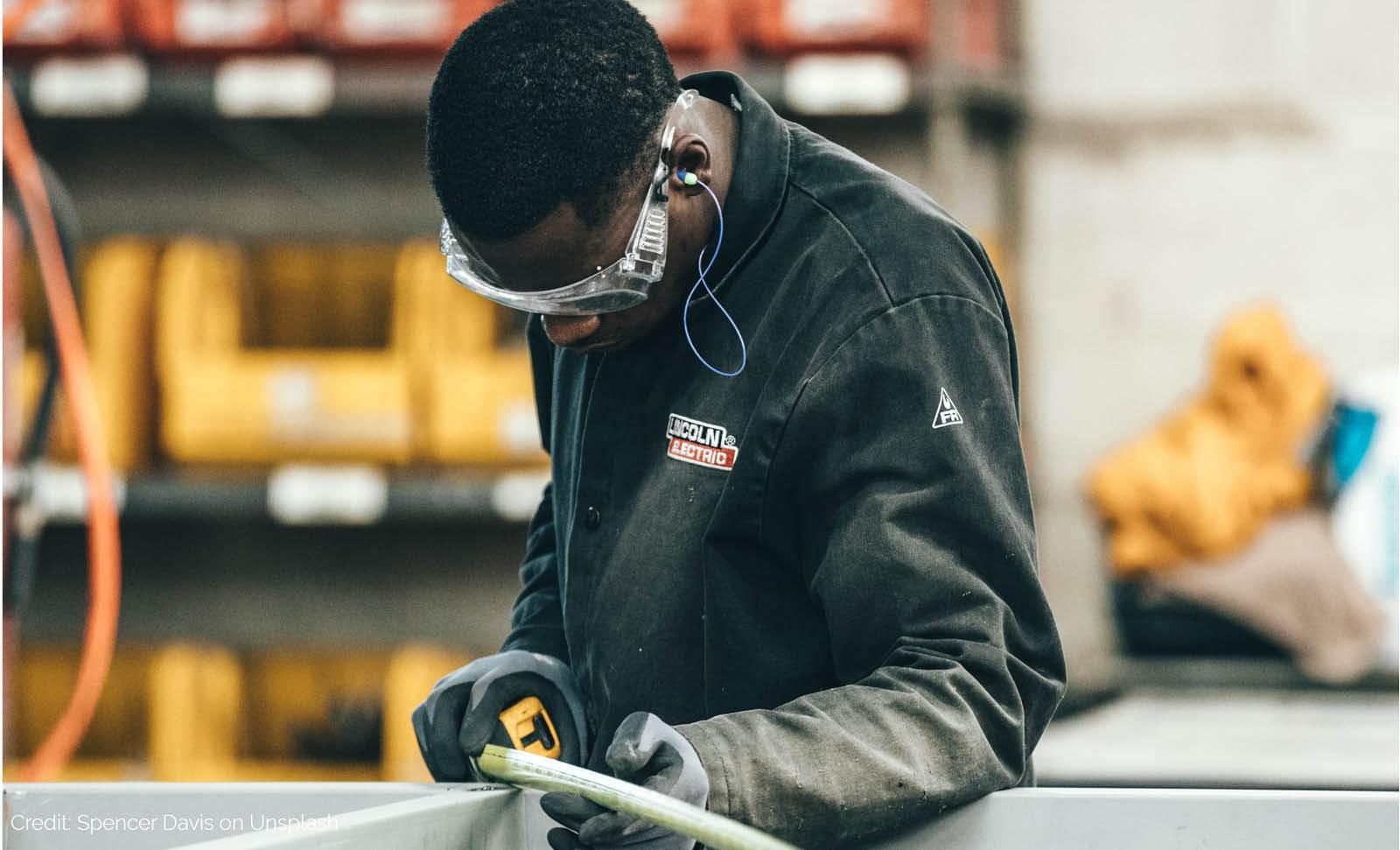
SBTi Progress Report 2021
The SBTi's third progress report, 'Scaling Urgent Corporate Climate Action Worldwide', finds the initiative in a period of exponential growth, with SBTi companies representing over a third of global market capitalization.
Explore the report
2021 was a record year for science-based targets
Since its inception in 2015, the SBTi has grown exponentially. The initiative is now evolving to become a global standard setter for corporate emissions reduction targets, providing clarity by grounding corporate target setting in science and credibility through a robust target validation process.
2021 was a record year for the SBTi, as the number of companies setting and committing to set science-based targets doubled to 2,253. This figure includes 1,171 companies that committed to set science-based targets and 1,082 with approved targets – with a global reach in 70 countries and 15 industries (figures from 31 December 2021). SBTi companies now cover over a third (35%) of global market capitalization - up from 20% in 2020, equal to $38 trillion.

2021 growth
A record year for new approved targets and commitments
SBTi commitments and target approval rates increased at a record pace in 2021 - three times faster than in 2020. More than 1,300 companies committed to and set science-based targets, at a rate of over 110 companies per month, compared with 35 companies per month in 2020. What’s more, the rate of companies’ target validation more than doubled, from 20 per month on average in 2020, to 49 in 2021, reflecting the initiative’s increasing technical capacity and resources to meet demand.
In 2022, the SBTi has continued to experience exponential growth. In the first quarter, almost 500 companies have set or committed to set science-based targets.
In 2021, there was also a significant uptake in science-based targets by small-medium enterprises (SMEs). 177 SMEs set targets, compared to 29 SMEs in 2020. The uptake is linked to the introduction of a streamlined route for SME target validation in mid-2020. It enables SMEs to immediately set a science-based target for their scope 1 and 2 emissions by choosing from one of two predefined target options. Although SMEs are not required to set scope 3 emissions reduction targets, they must commit to measure and reduce these emissions sources. 209 SMEs now have approved targets.
1.5°C becomes the new normal
The majority of SBTi companies’ scope 1 and 2 targets are now aligned with 1.5ºC, a positive sign in light of the increased urgency to limit global temperature rise, as laid out in reports from the IPCC and the Glasgow Climate Pact at COP26. As of December 2021, more than two thirds (68%) of all companies with approved science-based targets were aligned with 1.5ºC, compared to 41% in 2020. An annual 4.2% emissions reduction is required for 1.5ºC-aligned science-based targets. A typical SBTi-approved company has been even more ambitious than the 1.5ºC trajectory, with a linear rate of 8.8% scope 1+2 reductions a year during the period with approved targets.
The mainstreaming of 1.5ºC alignment was supported by more than two years of campaigning through the Business Ambition for 1.5°C campaign. Building on the unprecedented growth in ambition through the campaign, the SBTi announced in 2021 to make 1.5°C the central ambition in its target-setting framework. From July 2022, only target submissions aligned with 1.5ºC will be accepted. Already in 2021, almost 80% of the 587 approved targets were aligned with 1.5°C. Furthermore, 20 companies adjusted their targets to increase ambition through the SBTi’s voluntary ambition update process; and 52 have resubmitted their target, which can also include an incremental update.
Business Ambition for 1.5°C campaign: mainstreaming 1.5°C
In 2019, the SBTi, together with the UN Global Compact and We Mean Business, launched the Business Ambition for 1.5ºC campaign to mainstream target setting aligned with a 1.5ºC trajectory and pave the road to net-zero. Over two years, the campaign has grown exponentially, effectively making 1.5°C-aligned science-based target setting the new normal and bringing together a group of visionary leaders already committing to set net-zero targets in advance of the Net-Zero Standard launch. As of 31 December 2021, 1,131 companies were part of the campaign, from which over 60% have committed to set net-zero targets.
Engaging the value chain
Most SBTi companies with approved targets will reduce emissions across their entire value chain. Overall, as of December 2021, almost all (96%) of SBTi companies with approved science-based targets have targets for scope 3 emissions. At the same time, 16% of companies have set supplier engagement targets to incentivize their suppliers to set their own science-based targets.
Scope 3 emissions targets are instrumental in reducing emissions at the pace and scale needed. Upstream and downstream value chains are the largest source of emissions for most industries - sometimes representing more than 90%, especially in high-emitting industries. Addressing scope 3 emissions is also crucial to scale the adoption of science-based targets in emerging economies, as companies can encourage suppliers based in developing countries to set climate targets.
By requiring companies to set targets, not only for direct emissions, but for entire value chain emissions over which they have influence (i.e. scopes 2 and 3), the SBTi seeks to align all relevant economic actors across a value chain behind a common goal; therefore creating incentives and eliminating barriers for broader Paris-aligned systemic transformation.
The world’s first framework for credible corporate net-zero: The SBTi Net-Zero Standard
The SBTi’s Net-Zero Standard, launched in 2021 ahead of COP26 in Glasgow, is a major milestone for credible corporate climate action. The Standard is the world’s first framework to provide a robust, science-based understanding of net-zero, giving business leaders clarity and confidence that their near- and long-term decarbonization plans are aligned with climate science. It includes criteria and recommendations to support businesses in setting net-zero targets through the SBTi, consistent with limiting global temperature rise to 1.5°C.
In October 2021, seven companies - AstraZeneca (United Kingdom), CVS Health (United States), Dentsu International (United Kingdom), Holcim (Switzerland), JLL (United States), Ørsted (Denmark), and Wipro (India) - had their net-zero targets approved via a pilot program for the Net-Zero Standard. In addition, as of December 2021, 727 companies had committed to set net-zero targets through the Business Ambition for 1.5°C campaign, highlighting demand for the Net-Zero Standard.
G20 companies must drive action
Although the initiative is growing significantly, uptake is unequal across regions, with Europe in the lead. Accelerating the adoption of 1.5ºC-aligned targets across G20 countries is therefore a key goal of the SBTi 2021-2025 strategy.
To date, some countries of the G7 - especially the United Kingdom, the United States, Japan, France and Germany - have had the most approved science-based targets and commitments. G7 countries represent 55% of all companies overall, with Canada and Italy still lagging behind. Companies from other members of the G20 make up for 11% of all approved targets and commitments, while non-G20 companies make up over a third (34%), showing the need to increase efforts to further engage companies in emerging economies and developing countries.
Encouragingly, 2021 saw increases in target adoption and commitments from companies in G20 countries that are significantly contributing to global emissions, such as China and India, as well as Brazil, South Korea and South Africa.
More engagement needed in high-emitting sectors
In 2021, the SBTi has continued to see more uptake in some industries than others. Companies joining the initiative in 2021 were predominantly in the services, manufacturing, food, beverage and agriculture industries, which currently make up nearly half (47%) of all SBTi companies.
Some of the most impactful companies driving climate action in those industries, include Microsoft, Mastercard and Adobe in the services industry; Nestlé, The Coca-Cola Company and PepsiCo in food, beverage and agriculture; Apple, Siemens AG and Schneider Electric in manufacturing; and Mercedes-Benz, Ford Motor Company and General Motors in the car manufacturing industry.
Some industries, such as power generation or transportation services, are much more emissions-intensive than others and are still lagging behind. The SBTi is working to engage more companies in such high-emitting sectors. However, there are also a number of notable examples of companies with science-based targets from those industries, such as Holcim, Saint Gobain and Cemex in materials, as well as Iberdrola and Enel in power generation.

Increasing emissions coverage over time
In line with the increasing number of companies setting and committing to set science-based targets, there has been a major increase in scope 1 and scope 2 emissions coverage in the SBTi since its inception in 2015, as shown in the chart. The amount of scope 1 and 2 emissions covered by the SBTi has increased more than ten-fold between 2015 and 2021, from 145 million to 1.5 billion tonnes of CO2e. This is equivalent to the annual emissions from combined 2020 annual emissions of Japan and Brazil.
As of December 2021, the total committed annual emissions reductions across all approved science-based targets was 53 million tonnes CO2e, which is equivalent to taking 11 million cars off the road each year.
Despite the massive uptake of science-based targets in 2021 and increasing emissions coverage, there is still much to be done. Currently, the world is not on track to achieve the goals of the Paris Agreement. Maintaining the current level of global corporate and governmental action will increase global temperatures by 3ºC by 2050, spelling disaster for people and the planet. There is a need for a massive acceleration in companies setting science-based targets, across all countries and sectors, to ensure the world aligns with 1.5ºC.